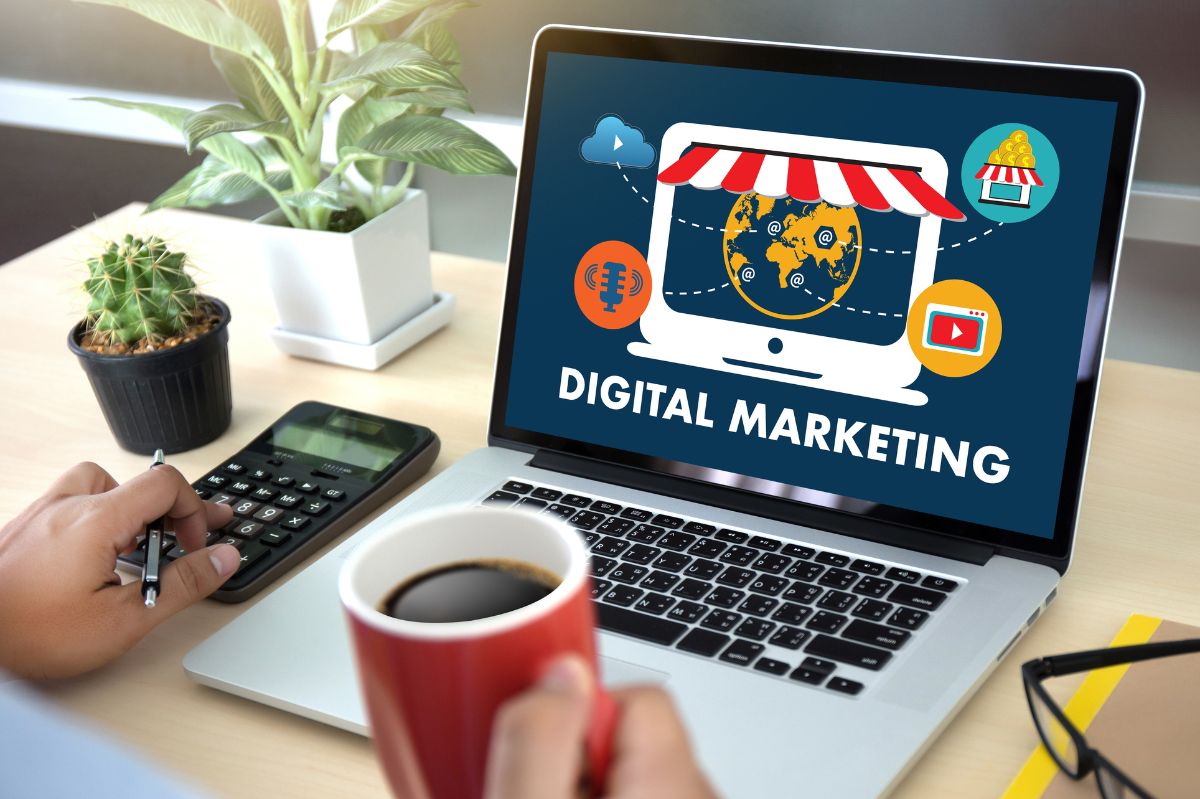10 Digital Marketing Tips to take advantage of all the opportunities of the web for your brand Summer is the time of the year to relax, yes, but also the time to start thinking about good resolutions for “September,” the month that has never stopped representing a “new beginning.”
And in a landscape where investments in digital marketing continue to increase and occupy an ever greater part of the advertising budget of companies, knowing what to look at and what to focus on can be useful for those who are already moving in this field or have decided to start investing in it.
Marketing doesn’t go on vacation.
Table of Contents
10 Digital Marketing Tips to achieve (always) better results
1. Adopt a
data-driven strategy One of the most evolutionary steps in the history of digital marketing has been the data-driven strategy approach. An approach that must be accompanied by the right tools and which provides for information monitoring, performance analysis (in the respective channels), and management of the content life cycle (in parallel with the customer life cycle)
2. Use Content Marketing to Spread Your Business
(Value) content marketing works. Website, newsletter, blog, everything that provides quality information represents an added value for its customers (and potential ones): it brings them closer to the product or service offered (closely linked to that content), builds trust in that company (loyalty) and increases its awareness (brand awareness) by making that brand perceive as an expert in that particular subject.
3. Use Email Marketing to create YOUR network
Once you have created your valuable content and, above all, YOUR database (of real and well-profiled contacts), you can enjoy the benefits of Email Marketing. That of cultivating communication with customers, from the first contact to the purchase, up to after-sales and their loyalty. And to build your own network, “own” and manage it. How? with marketing automation (see point 4).
4. Use Marketing Automation to acquire and know your contacts/customers
Don’t be fooled by appearances; Marketing Automation does not mean passive automation. It means simplifying, automating, and measuring marketing activities (such as lead generation or, indeed, email marketing) to acquire new customers and profile them in a real (and real) database based on actions, browsing, and purchasing behaviours.
5. Personalize your communication
The success of your communication (and your marketing campaigns) strongly depends on precise targeting for targeted communication. The key to effective communication is personalization based on that person’s characteristics, preferences, and needs. Ban on generic, depersonalized, and depersonalizing targets. Go to personalized experiences, where the product or service is tailored to your needs and is presented in the right tone of voice, in the right channel, and in the right time frame.
6. Focus on Mobile
the latest report tells us that mobile will overtake the desktop in 2017. Mobile browsing is becoming increasingly popular, and not just among millennials. More and more consumers are using smartphones or tablets to search for information, products, services, and above all, to make purchases. This means that the entire user experience must be mobile-first / friendly, not only the website, the design, and the contents but, above all, the (crucial) purchase path.
7. Use Inbound Marketing
Today’s consumer is more aware and informed. It is a type of consumer who independently seeks information on the products or services that interest him. Inbound marketing consists of creating online content that can attract the user’s / consumer’s attention, pushing him to approach spontaneously. Inbound strategies move closer to content marketing, focusing on social media, search engine optimization (SEO), strategic content on external blogs, and other targeted promotional channels.
8. Research your competitors
If we had to reinvent the wheel every time we buy a bike, the process would be much, much longer. Before moving into a new market, an analysis of the competition (in marketing and business management) is essential to streamline many steps. Not only to know what the market already offers, what it guarantees, and at what prices, but also to assess the strengths and weaknesses of current and potential competitors and identify opportunities and threats.
9. Cultivate relationships
A strong relationship is the most powerful marketing tool. Not only with customers (see point 3), the construction of relationships concerns all those communication strategies that bring benefits to the brand in terms of amplification of brand awareness and brand authority. Among these, cultivating relationships with bloggers and influencers with digital PR strategies can lead to long-lasting collaborations based on trust and mutual exchange. Strategies that are anything but trivial, the results of which directly and indirectly fall on commercial performance.
10. Learn from user feedback
From direct ones like reviews, live chat, and email to indirect ones like surfing behavior. Feedback from users populating your database or community is the most reliable indicator to gauge your business, services, or products. However, the most common mistake is focusing only on what “works” without looking at negative feedback. The best way to increase what works, however, is to understand what affects customer dissatisfaction, correct it and take the right path on all fronts.
Also Read : A Successful Company Needs a Team That Is Happy To Work On It

